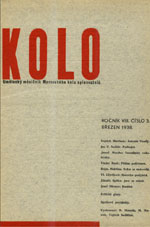

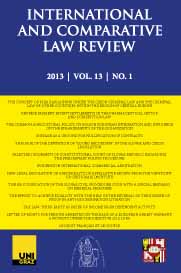
Keywords: Couple; Homosexual; Heterosexual; Marriage; PACS; Cohabitation; Filiation
French family law has just undergone tremendous changes. The may 17 Act which allows same sex marriage means the acknowledgement of a right for couples either homosexual or heterosexual. These couples can be married or not. Beyond the diversity, we can however feel the emergence of a right for the couple, that is to say common rules for all couples. The couple, from every angle, became an essential and inescapable element of family law which has its proper rules.
More...
Keywords: Jan Hus; Hussite Movement; the Reformation; Martin Luther; Enlightenment; Czech National Revival; František Palacký; Tomáš Garrigue Masaryk; Post- modernism
According to the Hussite approach, and also according to the approach of the Reformation streams, the death of Jan Hus represented a turning point in history, a return to the binding road to salvation. This is demonstrated in the Hussite chronicles, and also the depictions of Jan Hus as a witness to the first day and a Saint comparable to the early Christian martyrs. Although the Catholic environment viewed Jan Hus and the Hussites as heretics doomed to eternal torment in the flames of Hell, the preacher of Bethlehem Chapel was considered both a savvy and dangerous opponent. These two basic and extremely different approaches continued into the last quarter of the 18th century, when the Enlightenment began to present Jan Hus as a victim of conscience and the proclaimer of the primacy of state power. This interpretation, which viewed the current issues of the day in connection with Hus’ struggle, continued up until the last days of the 20th century. There is a lack of understanding of the true essence of Hus’ efforts in the contemporary Post-modern perception of the world, however. The logical results of this misunderstanding are recurrent, outdated explanations involving stereotypes, simplification and a tabloid approach.
More...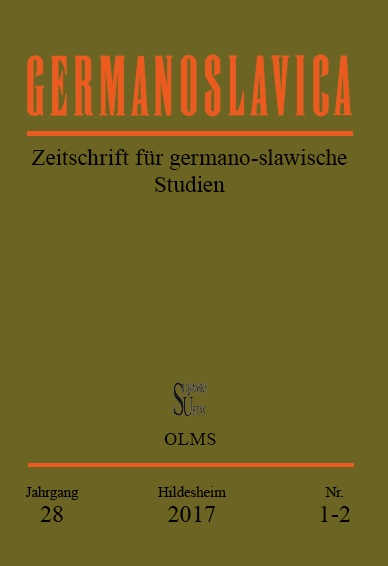
Keywords: Stanisław Srokowski; polish literature;novel;Repatrianci;
In his novel Repatrianci [The Displaced] (1988), Stanisław Srokowski picks up the issue of Polish people expelled from their homelands in the East, the so-called “Kresy,” which Poland lost after World War Two. In spite of its title the novel does not concentrate on a new settlement in the regained regions in the West, but on a never-ending journey in a railway carriage, which brings the heroes from the East to the West. The journey, which does not reach its goal, becomes a metaphor for human homelessness caused by historical circumstances, in this case the crimes committed by Ukrainian nationalists against Polish people. In his earlier works on this topic such as Repatrianci, Srokowski tries to avoid naming the people responsible for these crimes; in his later novels and short tales written after 2000, he does so and also joins the so-called “Kresy discourse” in Polish literature.
More...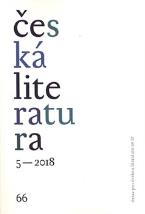
Keywords: Zvěřina Ladislav Narcis; Rosůlek Jan Václav; Colonization novel; Imagology; Literature stereotypes
The primary objective of the present study was to carry out a comparative analysis of the texts of two novels (Levoča and Nová země) set in Slovakia at the time of the emergence of the new Czechoslovak Republic. The comparative approach is interwoven here with the discourse of post-colonialism and the theory of imagology. In the second half of the 1920s, Ladislav Narcis Zvěřina and Jan Václav Rosůlek created two quite distinct images of post-1918 Slovakia. Both texts amount to colonization novels, each providing a different image of the chaotic socio-political situation following the arrival of Czechs in Slovakia during the first months of the existence of the new republic. Zvěřina’s version is closely aligned to the tradition of the Czech Slovakophiles who had gradually come to know Slovakia and took a more emotional approach to the issue of Czech-Slovak relations. However, the reality of those early days collapses under the weight of a love affair, which is intended, through the metaphor of the family, to consolidate the fraternal bond between Czechs and Slovaks. Rosůlek treats the Slovakophile tradition with irony and detachment, which enables him to gain experience and cognizance of Slovakia via the intellect. The conflict between intellect and emotion in the evolution of Czech-Slovak relations reaches far back into the nineteenth century. Despite the differences between the underlying concepts, both authors offer a similar model of the common enemy, having regard to numerous earlier literary stereotypes rooted in the national self-image that came to be exploited in the new time-space context of the First Republic to furnish an updating of CzechSlovak reciprocity. The study analyses the different concepts of nation as subjected to presentation in literature. Although each of the authors operates with different narrative standpoints and methods, both tend towards a common objective: support for and defence of the rationale behind the emergence of the Czechoslovak Republic.
More...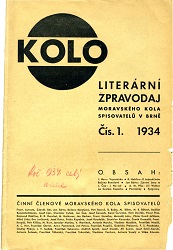
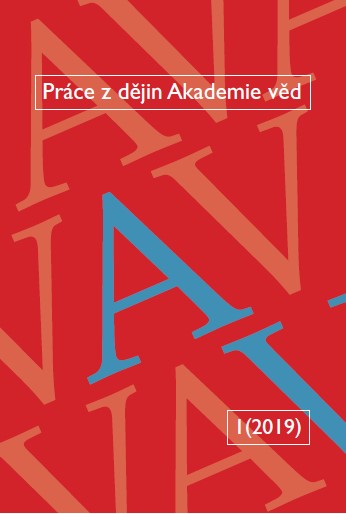
Keywords: Archival collections; Chronicle; Reviews.
Ke stému výročí úmrtí Milana Rastislava Štefánika; Přehled činnosti Archivu Akademie věd v roce 2018; Kolokvium „Nejedlého Dějiny předhusitského a husitského zpěvu (1904–1913) ve světle současného výzkumu české středověké hudby v evropském kontextu“; Zpráva z 18. celostátní archivní konference, Plzeň, 23.–25. dubna 2019; Reviews
More...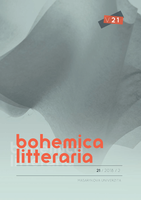
Keywords: Czech fantastic literature; Tereza Dědinová; Po divné krajině; Jan Dobiáš; Po dračím ohni; Neočekávané dýchánky; René Vaněk; Soma secundarium; fantastic element; fuzzy sets; the pure fantastic; fantas
The paper deals with the problem of dioecy in the Czech fantastic literature. There are two spheres of fantastic literature – the first is the popular one, associated with fandom, publishing houses, and specialized bookshops, the second one can be classified as "high literature" and is usually mimetic, therefore the reader may not expect any fantastic elements in it. However, there are fantastic elements present here – and often enough. One sphere usually does not accept the second one, though, as shown on examples of short stories by Jan Dobiáš and a novella by René Vaněk. The extratextual features are only one way to look at fantastic literature. Another possibility is to study the use of the fantastic element. And as presented here, the intratextual analysis divides fantastic literature at a completely different level than the extratextual analysis.
More...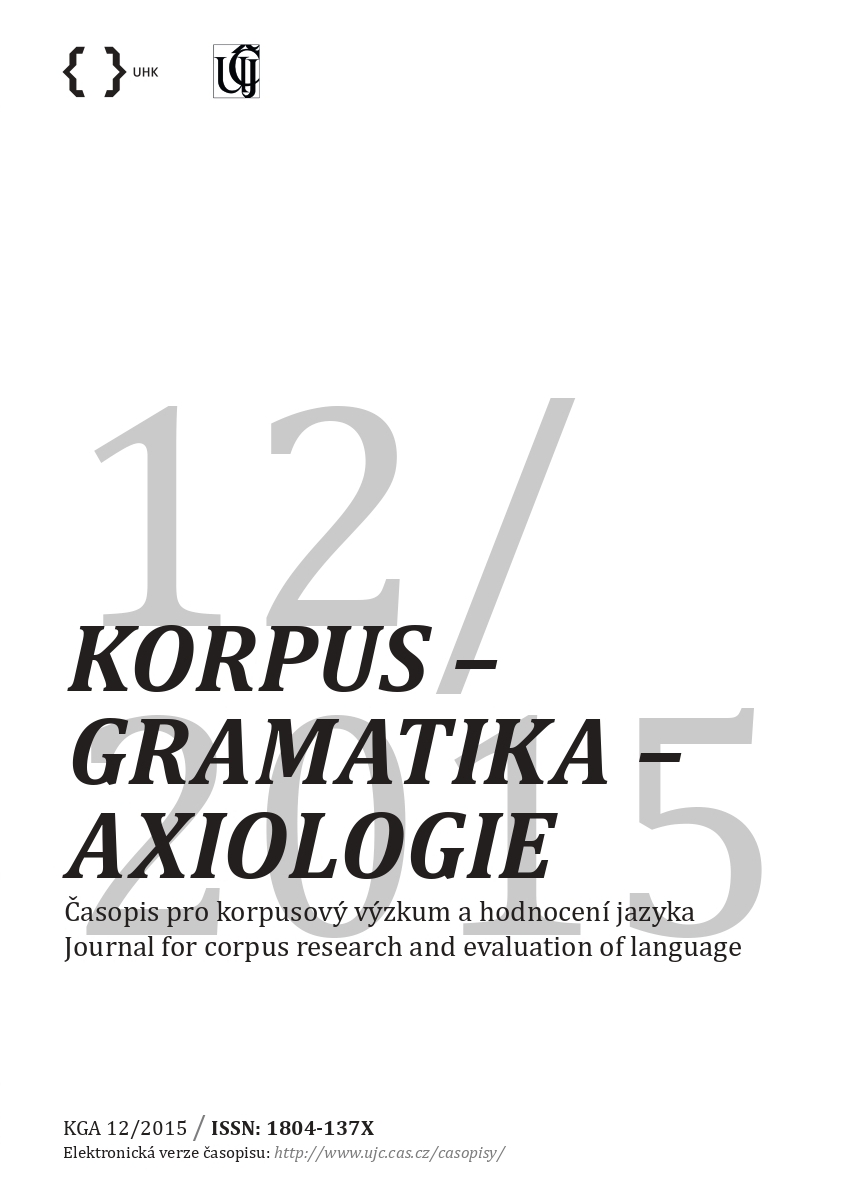
Keywords: word order; markedness; congruent attribute; unextended attribute; postposition of the attribute; inversion; semantic emphasis; contrastive emphasis; translation; translation solutions
This paper presents the most frequent marked position of attribute in Čapek’s novel Hordubal – the postposition of the unextended congruent adjective attribute – in its functions in the novel text. The inverse position of adjective attribute is mainly used to epmhasize the semantics of the postpositional adjective or its leading noun and for the contrastive accenting of the postposed attribute. It also works as a vehicle for poetisation and vivification of the text or is motived by the rhythm of the sentence. The postpositions used by Čapek are confronted with the translation solutions of three different German authors, that have translated the novel into German during several periods of the 20th century. The extent of preservation of the form and the function of the Czech postpositions in the translation process is evaluated. Special attention is paid to the efforts of the German translators to reproduce Čapek’s word order.
More...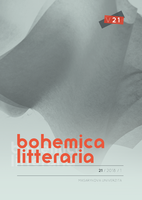
Keywords: Autobiography; identity; narrative; self-concept; Janet Frame;
The paper examines a three-volume autobiography (To the Is-Land, An Angel at My Table, and The Envoy from Mirror City) by Janet Frame, focusing on its portrayal of the self-construction of the protagonist. Using a narrative psychological conception of the self (esp. by Dan McAdams) and constructivist theories of autobiographical practices (e.g. Bruner, Eakin), the paper demonstrates the ways in which the depicted search for personal identity in autobiography by Frame interplays with the narrative strategies of the text, and relates this identity search to the cultural determination of self-construction and models of identity available in the given society.
More...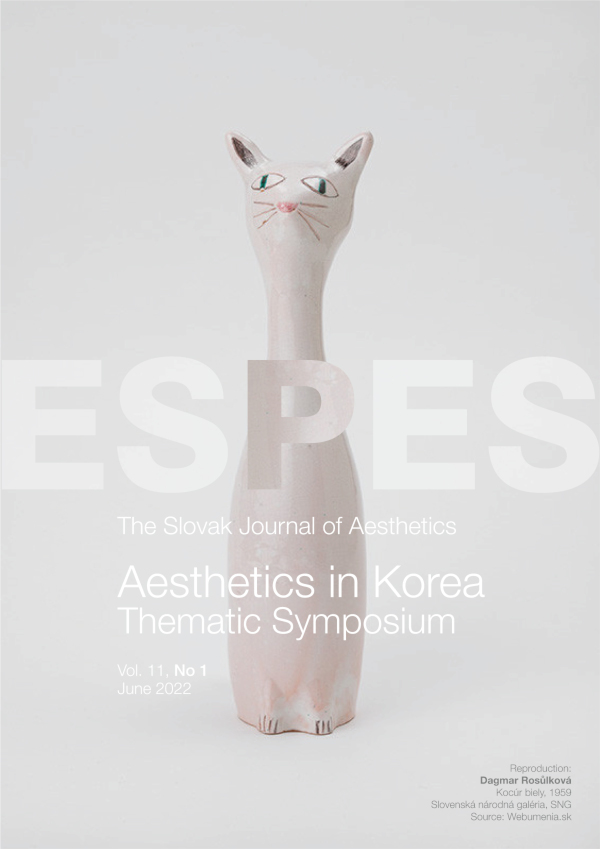
Keywords: Susanne K. Langer; Philosophy; Neuroaesthetics; Mind; Non-discursiveness
The continual possibility of aesthetic experience throughout history has prompted philosophical reflections about its nature and meaning in human life. This article outlines some neuroscientific ways of understanding its functioning, focusing specifically on Susanne Langer’s contribution. Commonly subsumed under the heading ‘philosophy of mind’ – especially due to the trilogy Mind: An Essay on Human Feeling – Langer’s interests in the human mind developed already in the 1950s, as witnessed by the paper The Deepening Mind. A Half-Century of American Philosophy. Following these lines, the article discusses Langer’s philosophical approach from the perspective of a (neuro)aesthetic inquiry, emphasizing particularly the importance of the non-discursive realm of the mind. It also shows how Langer’s account might be seen as going beyond that of John Dewey, which is often referred to as an advancement in the historical development of neuroaesthetics.
More...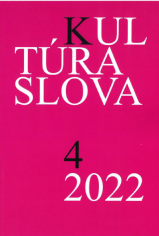
Keywords: Juraj Dolník;
20. augusta 2022 oslávil 80. narodeniny prof. Juraj Dolník, DrSc. Žiada sa preto reflektovať na činnosť tohto významného slovenského jazykovedca. Mnoho už bolo napísané z pohľadu učiteľa či kolegov (J. Horecký: Päťdesiat rokov docenta Juraja Dolníka, Jazykovedný časopis, 1992, č. 2, s. 137 – 139; J. Mlacek: Jubileum univerzitného profesora Juraja Dolníka, Jazykovedný časopis, 2002, č. 2, s. 143 – 148; S. Ondrejovič: Jubileum profesora Juraja Dolníka, Slovenská reč, 2002, č. 6, s. 100 – 102; M. Šimková: Čerstvý sedemdesiatnik Juraj Dolník a človečenské univerzum konštituované jazykom, Kultúra slova, 2012, č. 5, s. 302 – 305). Jednou z vlastností, Kultúra slova, 2022, roč. 56, č. 4 243. Jednou z vlastností, ktorú autori prisudzovali osobnosti a dielu jubilanta, bola provokatívnosť. Spomínali ju len tak mimochodom (J. Mlacek, M. Šimková) alebo nepriamo (S. Ondrejovič). Myslíme si však, že tento prívlastok by mal byť leitmotívom nasledujúcich riadkov, pretože prof. J. Dolníka vystihuje hneď v niekoľkých významoch.
More...Keywords: Interview; Theatre; Alexandra Badea;
Interview with author and director Alexandra Badea.
More...
Keywords: reviews;
This paper contains following book reivew: PLAŠIENKOVÁ, Zlatica – SÁMELOVÁ, Anna – VERTANOVÁ, Silvia: Spytovanie sa na cloveka v online svete. Bratislava : Univerzita Komenského v Bratislave, 2021. 80 s. ISBN 978-80-223-5108-9.
More...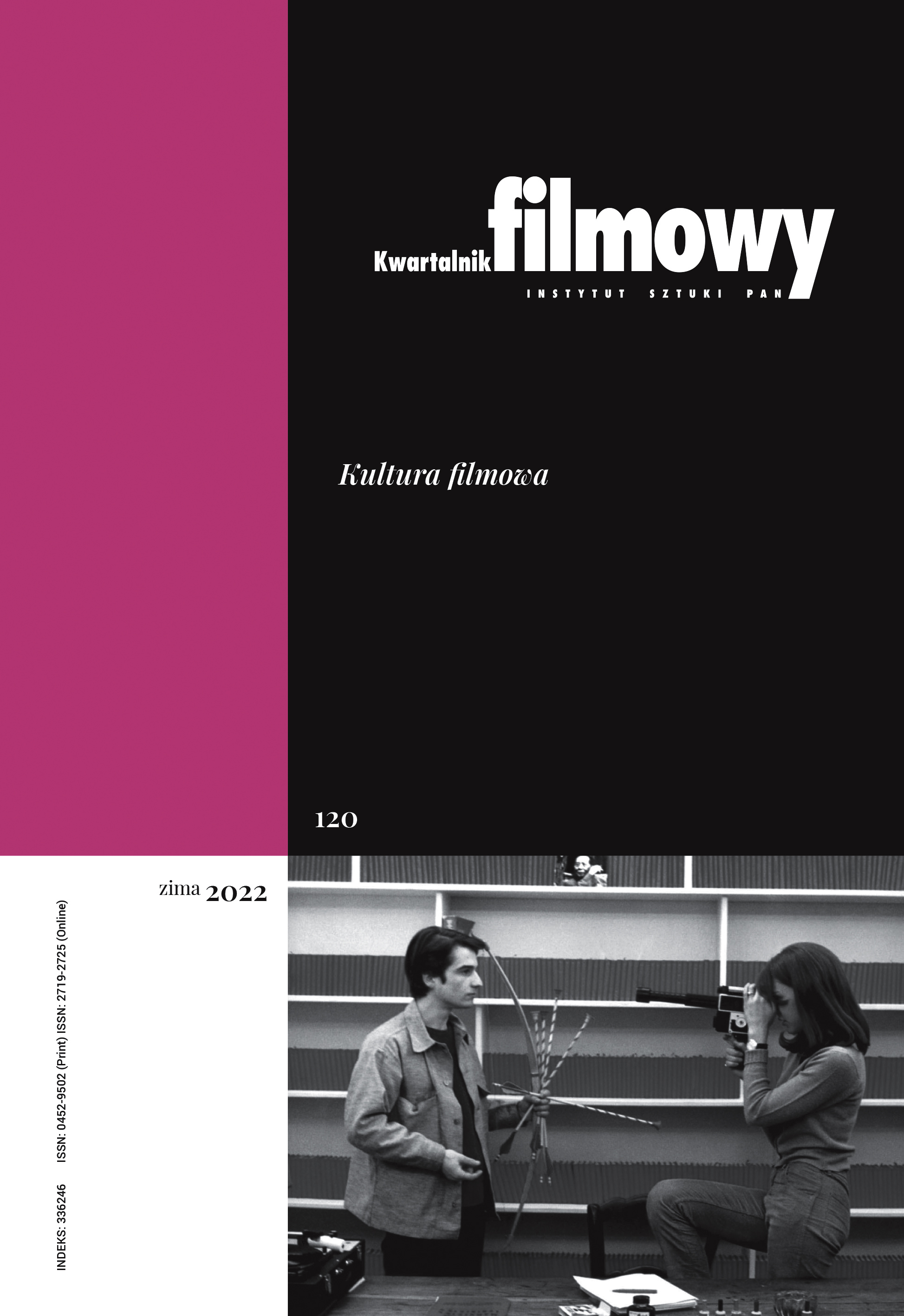
Keywords: piśmiennictwo filmowe w Czechach; film historyczny; historia najnowsza w badaniach naukowych
Film a dějiny (Film i historia) to nie tylko wydawany w Czechach cykl publikacji pokonferencyjnych, ale także świadectwo nowego sposobu radzenia sobie tamtejszego środowiska akademickiego z dylematami historycznofilmowymi. Ukazujące się od 2004 r. monograficzne opracowania z jednej strony wypełniają filmoznawcze białe plamy, poruszając tematy wcześniej w dyskusji nieobecne, a z drugiej proponują dialog zogniskowany wokół kluczowych zagadnień dotyczących kinematografii narodowej. Do tej pory zrealizowane zostały następujące projekty: „Adolf Hitler i inni – filmowe obrazy zła”, „Polityczna kamera – film i stalinizm”, „Normalizacja”, „Pierestrojka”, „Postkomunizm – przemiany w czeskim filmie historycznym po roku 1989” i „Propaganda”.
More...Keywords: move; solastalgy; nomadic of literature; long poem; railroad novel
Using the examples of two works of Central European authors (a female and a male) who write in German as in their „non-native-language“ the article tries to point out attempts to interpretate literary reprensentations of special miogration discourses under the focus oft two extremely opposing current theoretical positions: the „move“ (Khanna 2021) according to which migration as an expectation of normality and sedentary life would be he exception today. On the other hand the „solastalgy“ (Morizont 2019) as the way of „home with no exile“. Both works raise awareness for that in a globalized and increasinly world one´own environment is mutating into something foreign, so that the only oportunity would be to sty on the move.
More...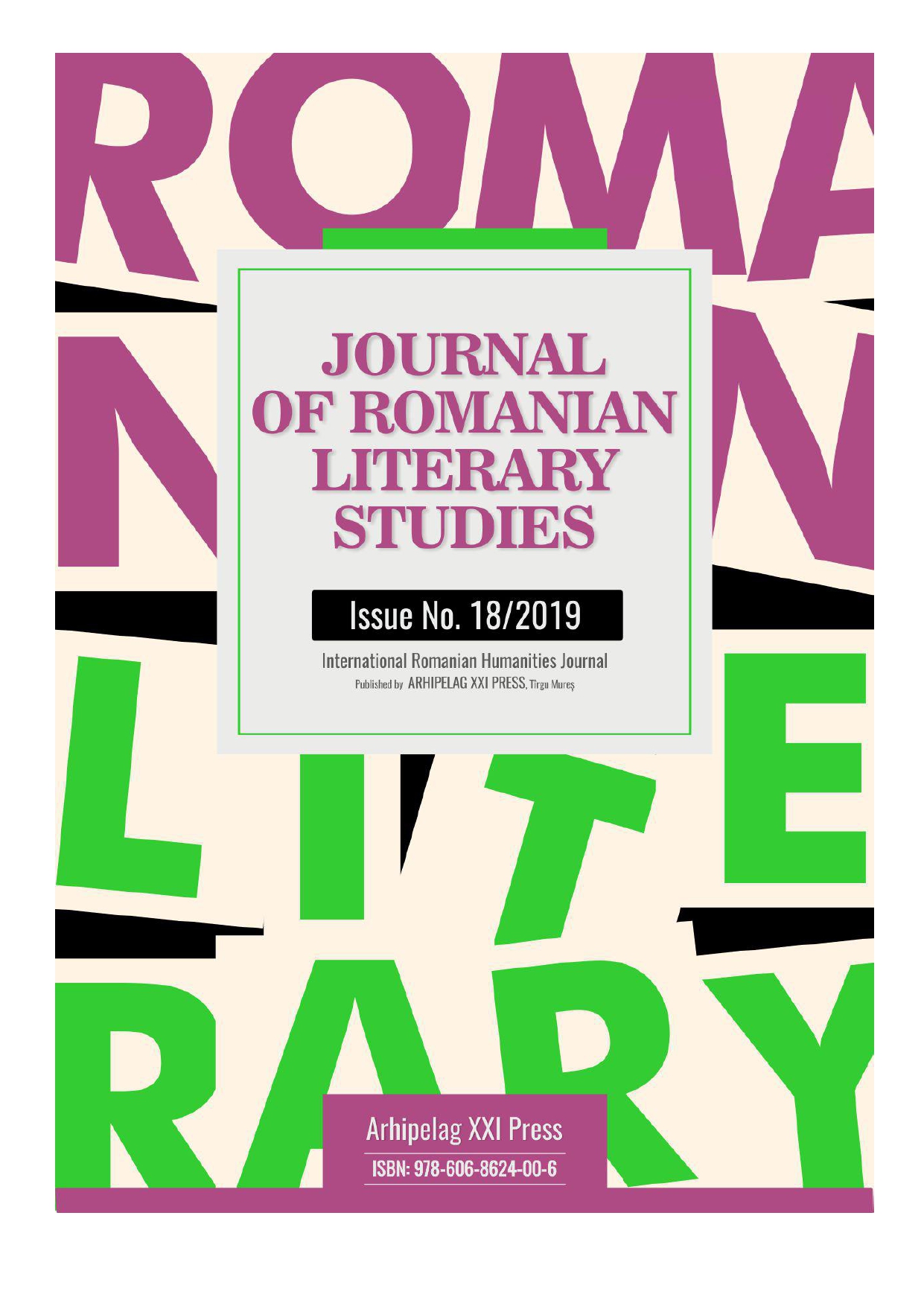
Keywords: dramaturgy; theatre; parable; canonizing models; innovation;
Marin Sorescu's accomplishments as a playwright are spectacular, taking his contemporaries by surprise, once more. Of striking novelty, his plays have benefitted from an immediate success, being translated and played on numerous stages worldwide. Beyond assimilating expressionist principles and procedures, the author influences decisively the laws and conventions of naturalist drama by introducing several innovative elements, thus imposing a serious issue and treating it in a comic register. The plays express essential problems for the époque and human beings, in general. He is devoted to finding the truth about human being and about life. The confrontation between the hero and his existence stages an itinerary of challenges and suffering. Parables of existence, the sorescian texts denounce, among other aspects, restraints of any sort.
More...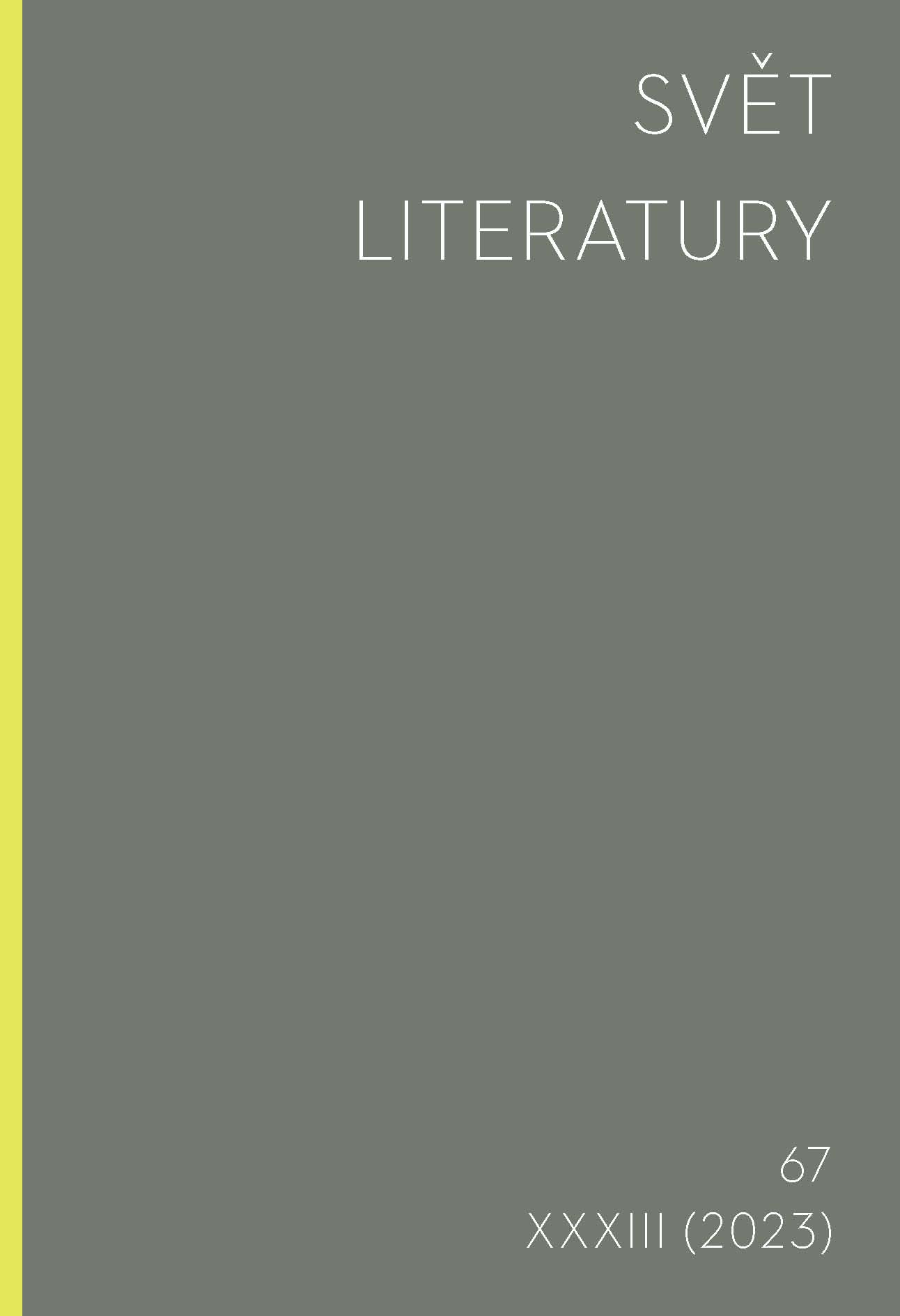
Keywords: Climate fiction; cli-fi; environmental crisis; global warming; dystopia
Climate fiction (more commonly cli-fi) is a relatively new yet highly influential literary genre focusing on the reflection of anthropogenic climate change and the environmental crisis more generally. The introductory part of the study outlines the development and characteristics of cli-fi and comments on the predominant dystopian tone of the works belonging to the genre. The subsequent practical section analyses seven selected examples in terms of climate change reflection in relation to the state of the fictional world, anthropocentric and biocentric perspectives, and representations of old and new societies. In the concluding remarks, the study draws on the findings of empirical ecocriticism to convey the current state of knowledge regarding the effect of climate fiction on readers.
More...